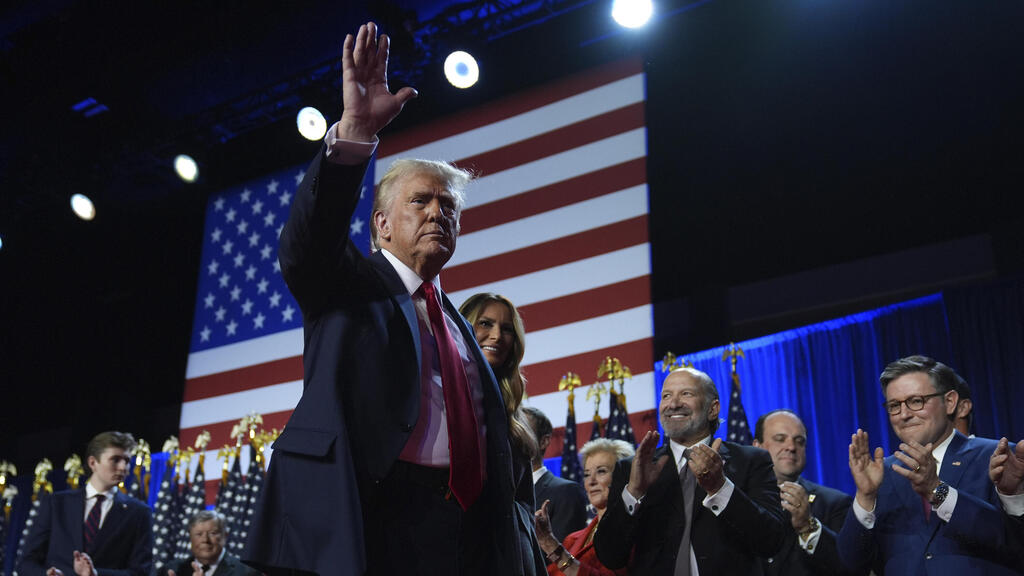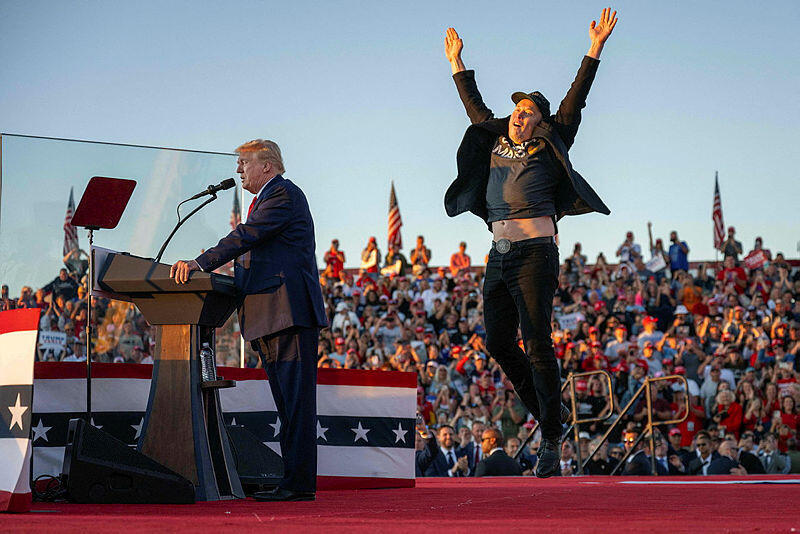Getting your Trinity Audio player ready...
U.S. President-elect Donald Trump's speech was correct: his win is indeed unlike anything America has seen before. Trump swept across the country, winning the hearts and votes of millions. Not only did he secure the presidency, but his Republican Party also clinched control of both houses of Congress, ensuring a powerful majority. Trumpism prevailed, cementing a major victory across America.
Although markets and economists were surprised by the magnitude of Trump’s win, the reaction has been relatively subdued. Investors may be hoping that President Trump will be cautious about fully implementing his sweeping economic promises.
These promises include tariffs of up to 20% on all imports to the U.S., with even higher tariffs on Chinese imports; a sharp corporate tax cut to 15%; reduced capital gains taxes; tax exemptions for Social Security benefits, tips, and overtime; repealing the tax requirements for Americans living abroad; ramping up oil and natural gas production; mass deportations of undocumented workers; deep federal budget cuts, especially in aid to Ukraine; and extending his 2017 tax reform law. Such moves could ignite a global trade war, posing a significant threat to global economic stability.
However, when it comes to Trump, predictions must be made carefully. (I too learned that lesson on election night, as I’d mistakenly anticipated a win for Vice President Kamala Harris. Apologies to the readers.)
According to detailed forecasts from Goldman Sachs, Trump’s policies could produce a mixed economic picture: a modest reduction in the federal deficit by about 1% to 1.5% of GDP, a small boost in stock indices and slightly faster growth.
On the other hand, inflationary pressures, rising economic inequality, an overly strong dollar and international trade complications are likely. Goldman Sachs also foresees major regulatory rollbacks, as Trump’s chief campaign financier, Elon Musk, is expected to lead a national effort to streamline government.
The implications for Israel’s economy? That depends first and foremost on the Trump administration’s willingness to continue its unprecedented level of military support. While Trump has expressed plans to cut foreign aid, it remains uncertain if or how this will affect aid to Israel.
His planned tariff hikes, which would not take effect for months, are unlikely to create substantial challenges for Israeli exporters. However, the sharp corporate tax cuts and reductions on capital gains might encourage some large corporations with investments in Israel to bring parts of their operations back to the U.S.
Ultimately, based on past experience, economic relations between Netanyahu’s government and the Trump administration are likely to be strong. Netanyahu was quick to congratulate Trump on his “historic comeback” to the White House, and the Tel Aviv Stock Exchange is already reflecting the news.
In a special issue of New York Magazine, an illustration summed up the mood of millions of Americans—and many Israelis. It depicted a man on the edge of a deep chasm, asked by a friend, “So, how’s it going?” How does it feel to stand a step from falling? Hours after the illustration was published, it became clear that liberal America isn’t a step from the edge—it has already fallen.
For now, at least, American liberals see Trump’s victory as a threat to democracy and a step toward authoritarianism, much like the fears many Israelis felt after Netanyahu dismissed Defense Minister Yoav Gallant. Politics rooted in division and resentment appears to have won, and the doors to single-party rule are swinging wide open.
Get the Ynetnews app on your smartphone:





